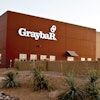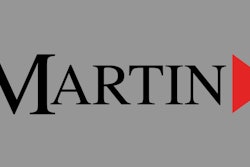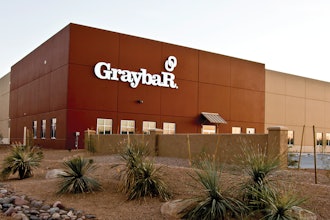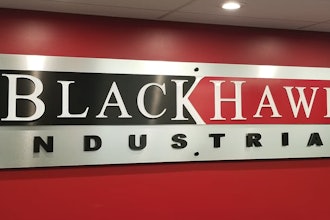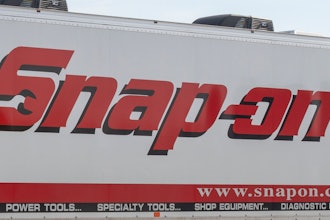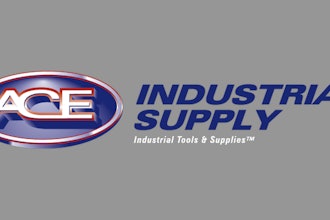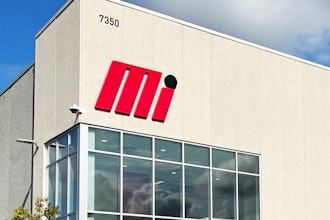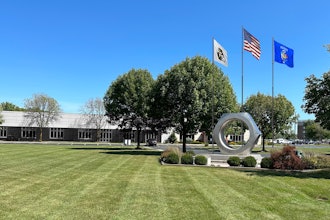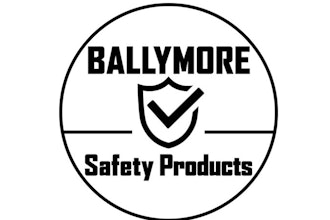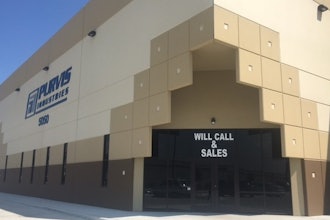Cisco-Eagle is a material handling distributor and integrator, one which provides its customers with solutions for the movement, storage, retrieval, control, and protection of materials and products throughout their manufacture, distribution, consumption, and disposal. For Cisco-Eagle, it’s all about enabling their clients to get the right amount of the right material to the right place at the right time. Founded in 1970, Cisco-Eagle has grown to 110 employees spread across eight offices throughout Texas, Oklahoma, and Arkansas, with its corporate office located in Dallas.
Challenges
For Cisco-Eagle, as with any company, maintaining consistent, timely, and accurate customer data is a mission critical goal. But with a diverse customer base of approximately 9,000 clients ranging from Texas Instruments to Wal-Mart to General Electric, Cisco-Eagle found that inconsistencies across interdepartmental groups, particularly between the marketing and sales departments, in the way customer information was being entered, stored, and tracked was leading to tens of thousands of dollars in avoidable expenses and even more in lost revenue.
“We had some employees using Microsoft Access, some using Excel, some in Outlook and still others using Web browser-based CRM tools,” said Chris Doyle, Cisco-Eagle’s director of marketing. “This led to not only very disparate data, but many hours spent trying to consolidate and clean up the customer information so it was usable as a whole.”
For example, every time the marketing team planned customer outreach, such as a direct mail campaign, they had to dedicate resources to not only making sure the customer data pulled in from the various pools of information was still accurate, but they also had to bring it all together in a reliable and actionable format.
“It was almost a full time job to keep all our customer data reconciled and usable,” Doyle said. “In fact, we had one associate who spent 70 to 75 percent of her time just pouring through our various customer databases, trying to keep it useful for outreach activities. It was a herculean effort.”
Cisco-Eagle estimated the simple problem of disparate customer databases was costing them approximately $55,000 a year in expenses alone, and this, according to Doyle, was a conservative estimate. The reality is, it was probably more.
“We certainly wanted to reduce the amount of money we were spending on reconciling customer data, especially because we knew it wasn’t necessary if we could all just get on the same page,” Doyle added. “This doesn’t mean we wanted to cut expenses by reducing employees or their hours, we simply wanted to free those employees who were spending so much time in a mission critical, but ultimately avoidable task, to do higher priority revenue-generating activities.”
In addition, the company knew the lack of common threads tying their customer data and interactions together was also costing them in lost revenue. They looked at the number of sales inquiries and leads the sales staff received and agreed in excess of 10 percent did not receive follow up in a timely manner because of a lack of a process and execution on that process.
“We conservatively estimated the percentage of those inquiries and leads that could be converted into sales if we had the ability to better manage and track them,” Doyle said. “Once we applied our average order size to that, we figured we were missing out on approximately $150,000 to $175,000 worth of gross profit per year.”
After this thorough analysis, Cisco-Eagle decided it was time to get serious about implementing a customer relationship management CRM solution.
Solution
Cisco-Eagle actually began looking into CRM software seven or eight years prior to the issues outlined above fully came to fruition, but they heard too many nightmare tales of CRM vendors offering very expensive solutions which ultimately provided little functionality and minimal benefit.
Company executives also heard many stories of poor reliability, disastrous implementations with abysmal user adoption, and virtually no return on investment. At the time, they realized CRM was a necessary tool, but with so many vendors still in the research and development phase, they simply didn’t want to pay for a solution, only to become a vendor’s guinea pig.
However, knowing the CRM industry had matured, and after the analysis revealing how many expenses the company could reduce and how much revenue could be increased by implementing a unified CRM solution, Cisco-Eagle decided it was worth another look.
“We looked at many solutions,” Doyle said. “Ultimately, we narrowed it down to three: Microsoft CRM, TeamScope, and Avidian Technologies’ Prophet.”
Not leaving anything up to chance, an interdepartmental team was assembled to analyze the options and determine which solution would make the most sense for Cisco-Eagle. The group developed and prioritized a list of criteria they deemed as critical, including sales pipeline visibility, opportunity and proposal logs, robust reporting, and configurability.
They also looked at non-functionality related criteria, such as how easy each solution would be for users to adopt and integrate into their daily routines and how efficient they felt the technical implementation would be.
“One additional area we really looked at was what customer references each vendor could provide us,” Doyle added. “To be honest, we had a hard time finding quality customer references for most of the companies we looked at. Avidian was the exception. They were able to provide great customer references, and the customers were all very satisfied. We actually did one end user site visit, spending a couple of hours understanding how they used the application. That assisted us in deciding Prophet was the CRM solution for us.”
The fact that Prophet is built into Microsoft Outlook also played a big role in Cisco-Eagle’s decision.
“We use Outlook,” Doyle said. “Most if not all our employees are in Outlook for e-mail and calendaring all day long. So, naturally we felt the fact that Prophet simply adds all the CRM capabilities we were looking for to Outlook was a major plus. We felt this approach would allow us to be up and off to the races much faster. This proved to be the case.”
Implementation
Cisco-Eagle has been up and running on Prophet since February of 2009. The company initially rolled the CRM out as a cross-team pilot program, including members of the sales and marketing teams. After just three months, Cisco-Eagle’s management team was pleased with the results the pilot team was achieving and the company-wide implementation was initiated.
“We had Avidian do an on-site pilot team and administrator training at the very beginning,” said Anne Miller, Cisco-Eagle’s education and training manager. “This was really helpful because the trainer was able to give us the pros and cons of some of the administrative decisions we were making. After that, we felt equipped to carry out the rest of the training ourselves. In all, the implementation went well; in fact, with eight offices across three states, the biggest challenge was simply the logistics of getting all our people trained.”
As predicted by Cisco-Eagle, selecting a CRM solution built into Outlook paid off in terms of user adoption.
“We really only have two or three users out of about 50 that aren’t using Prophet regularly for their contacts and opportunities,” Miller added. “We have 15 or so users that have really taken full advantage of the software and are using all the functionality regularly. I would say the majority of users are very happy, with only a couple who have had technical difficulties.”
Overall, Prophet has allowed Cisco-Eagle to do just what they set out to: unite disparate cross-team customer data and regain lost revenue due to inefficient and untimely sales lead follow up.
Doyle estimated the complete Prophet implementation cost Cisco-Eagle around $50,000. Meaning that within the first year alone, the CRM had essentially paid for itself by reducing the estimated $55,000 in expenses the company was incurring associated with incongruent customer databases.
“Not only did we see CRM literally pay for itself through expense reduction and efficiency gains,” Doyle said. “We also began capturing lost revenue thanks to having better CRM tools and processes in place for managing sales leads that were otherwise falling through the cracks. These revenue gains were significantly greater than what we achieved in expense reductions. In my opinion, CRM just makes good business sense. We’ve been happy with Prophet and the results.”
About Cisco-Eagle
Cisco-Eagle is one of the nation's largest materials handling integrators and distributors, providing cutting edge system design and expert customer care. Services offered include systems integration; consulting; and equipment sales, service and maintenance. For more information, please visit www.cisco-eagle.com.
About Avidian Technologies
Avidian Technologies is a software company specializing in creating both cloud-based and on-premise software solutions for users of Outlook and Exchange. Prophet, developed by Avidian Technologies on the .NET platform, is the leading contact management and CRM software built inside Microsoft Outlook. The company is headquartered in Redmond, Washington. For more information, please visit www.avidian.com.Cisco-Eagle is a material handling distributor and integrator, one which provides its customers with solutions for the movement, storage, retrieval, control, and protection of materials and products throughout their manufacture, distribution, consumption, and disposal. For Cisco-Eagle, it’s all about enabling their clients to get the right amount of the right material to the right place at the right time. Founded in 1970, Cisco-Eagle has grown to 110 employees spread across eight offices throughout Texas, Oklahoma, and Arkansas, with its corporate office located in Dallas.



